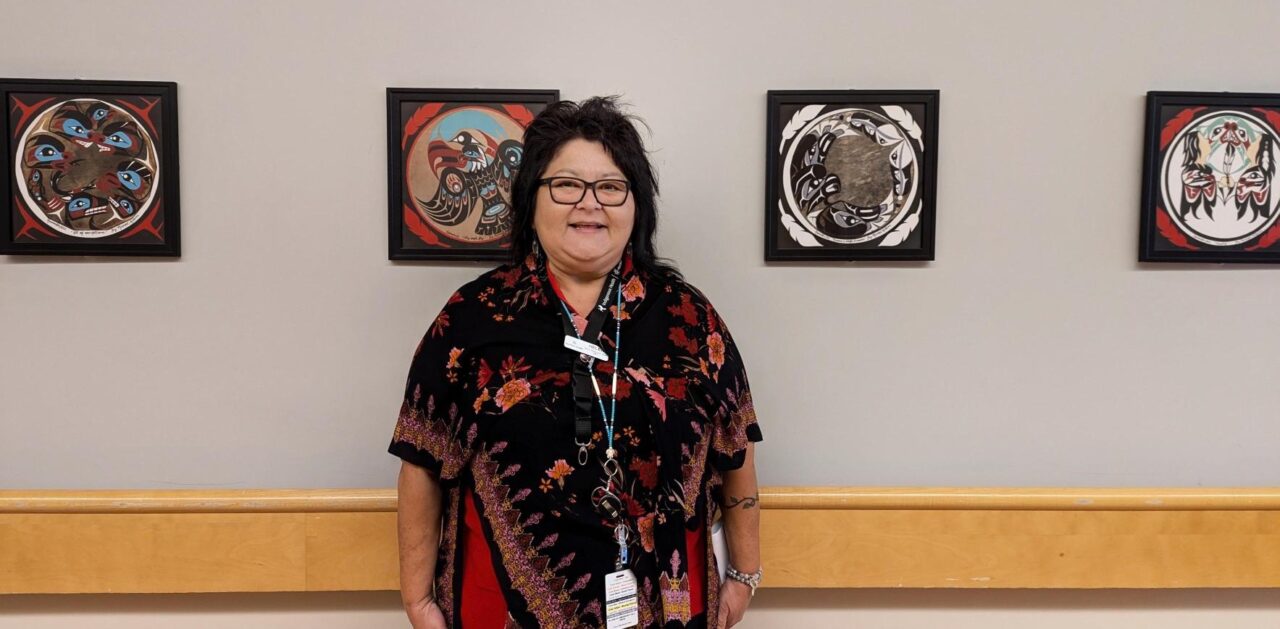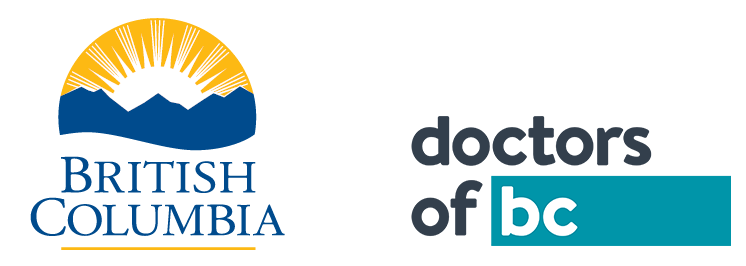
A meaningful partnership is fostering more culturally safe care at the University Hospital of Northern BC (UHNBC) in Prince George, starting in the Emergency Department (ED).
UHNBC is uniquely positioned to address health inequities affecting Indigenous Peoples. The region has the highest Indigenous population in the province. It is also the largest teaching hospital in the north for health care providers of the future.
Dr Christina Boucher, a non-Indigenous ED physician, partnered with Elder Lucy Duncan and UHNBC leaders to bring together Elders, community members, and health care staff to create more culturally safe care in the ED – often the first point of entry for individuals accessing medical care and when they are most vulnerable.
The project was supported by Northern Health and the Prince George Medical Staff Physician Association through Facility Engagement – an initiative of the Specialist Services Committee and the Joint Collaborative Committees, a partnership between Doctors of BC and the BC government.
Feeling and finding purpose through community member engagement
Elder Lucy Duncan, a member of the Binche Whu’ten Nation, belonging to the Lhojuboo (Bear) Clan, is a cultural educator working with the Central Interior Native Health Society. She contributes to EQUIP Health Care work to foster health equity within BC’s health care system. Lucy has been an enthusiastic partner on the ED project.
To set the stage for safe and respectful engagement, Elders and Indigenous community members with lived emergency care experiences were invited to join interdisciplinary health care providers in monthly meetings.
Before jumping to solutions, the group prioritized building understanding and uncovering a common purpose through truth-telling and the sharing of personal stories.
Building on a foundation of relationships and community connections, the advisory group advanced some practical recommendations to provide culturally safe care in the ED, as well as other areas of the hospital.
Taking practical action for positive change
Dr Boucher then handed the project off to Courtenay Kelliher, Manager of Clinical Operations at UHNBC, to oversee implementation of changes.
To start, Northern Health hired three full-time Indigenous Health Service Assistants to support patients arriving at ED. As part of the interdisciplinary team, the assistants help patients with their comfort needs, navigating the ED, and making connections to their communities, while serving as a learning resource for physicians and frontline care staff.
An additional Indigenous Patient Liaison was contracted through Carrier Sekani Family Services to assist patients in navigating their medical care and related needs if they are admitted to the hospital from the ED.
New roles were also extended to inpatient settings, including two additional Indigenous Health Service Assistants, and an Indigenous Care Coordinator with a social work background to support family meetings, discharge planning, and connections to Indigenous health resources.
Notably, the hiring process for these positions involved Elders, who helped develop interview questions, assess candidates, and make the final hiring decisions.
Improving the hospital environment
At the same time, the ED environment was made more welcoming by incorporating Indigenous artwork and a display drum which can be used for in-hospital drumming ceremonies – both completed by local Indigenous artists. There is also work underway to add bilingual signage, translated by Elders from English to Dakelh, to the ED.
Northern Health relational security officers underwent extended cultural safety training and consulted on plans to make their uniforms more culturally appropriate and welcoming for patients, families, and visitors arriving at the hospital.
Further, UHNBC amended its scent-free policy to allow for essential-oil liquid smudging in higher-acuity areas like the ED, and established a comforting viewing space for Indigenous families whose loved ones have passed, and where full smudging ceremonies can be performed.
With many recommendations implemented, the ED advisory group meets less frequently, while maintaining virtual connections. Members are ready to be involved in new projects, such as upcoming plans to make the chapel space more culturally accommodating.
While there’s always more to do to advance cultural safety, the project has demonstrated that positive change is possible through meaningful collaboration.
“It is only through acknowledging our past can we move forward to a better future.” – Elder Lucy Duncan

